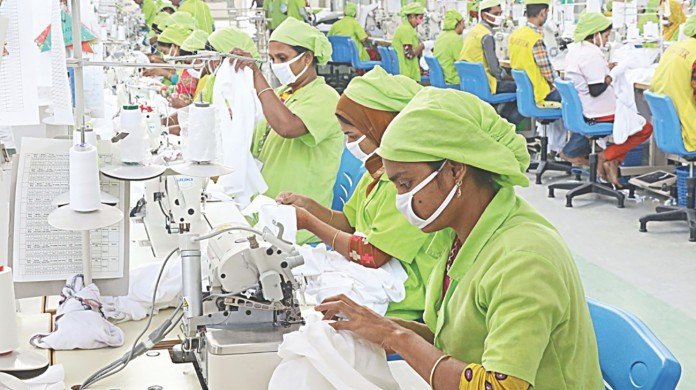
The growth of the economy across the globe might face a severe crisis as the world is still challenging a new variant of coronavirus that could sweep in each and every country with more severity.
The United Nations warned recently that the world economy is on a tight squeeze, still reeling from the Covid-19 pandemic whose impact will be felt for years to come but still expected to make a modest recovery of 4.7% in 2021 which would barely offset 2020 losses.
The UN's new report on the World Economic Situation and Prospects states that the once-in-a-century crisis sparked by the global impact of the coronavirus caused the global economy to shrink by 4.3% in 2020 -- the sharpest contraction in global output since the Great Depression that began in 1929 and far higher than the 1.7% reduction during the Great Recession of 2009.
"The depth and severity of the unprecedented crisis foreshadows a slow and painful recovery," said UN chief economist Elliott Harris, the assistant secretary-general for economic development.
"As we step into a long recovery phase with the roll out of the vaccines against Covid-19, we need to start boosting longer-term investments that chart the path toward a more resilient recovery -- accompanied by a fiscal stance that avoids premature austerity."
The lockdowns, quarantine measures and social distancing introduced during the second quarter of 2020 helped to save lives but also disrupted the livelihoods of hundreds of millions of people worldwide.
By April, full or partial lockdown measures had affected almost 2.7 billion workers, representing about 81% of the world's workforce. And another 131 million people were pushed into poverty, many of them women, children and people from marginalized communities.
China, the world's second-largest economy where Covid-19 first emerged, was the only country in the world to register positive economic growth in 2020 -- 2.4% -- and the UN forecasts that it will grow by 7.2% in 2021.
China will account for about 30% of global growth in 2021. If that happens, it will help many countries in Africa, Latin America and the Caribbean that supply resources and commodities to China.
According to the UN forecasts, the US economy will grow 3.4% in 2021 after shrinking 3.9% in 2020, Japan's economy will grow 3% this year after contracting 5.4% last year, and economies of Euro-zone countries will grow 5% in 2021 after shrinking 7.4% in 2020.
Developing countries saw a less severe contraction of 2.5% last year, and the UN is forecasting a 5.7% rebound in 2021.
It will remain critical that the Group of 20 -- the world's 20 major economies accounting for nearly 80% of world output -- return to the trajectory of growth, not only to lift the rest of the world economies but also to make the world economy more resilient to future shocks.
The $12.7 trillion in global fiscal stimulus -- more than half from Germany, Japan and the United States -- prevented a Great Depression-like economic catastrophe worldwide.
In dollar terms, stimulus spending per capital averaged nearly $10,000 in the developed countries, while it amounted to less than $20 per capita in the least developed countries.
The primary goal of the fiscal stimulus was to stabilize the global economy so there was no drying up of liquidity. This was achieved, the report said, but the secondary goal was to timulate investments and prevent bankruptcies and here we see significant slack. The report further said that all the major economies saw significant increases in money supply, about 23% for the United States, which isn't surprising since most stimulus money went into the financial markets because households were unable to spend the money or businesses were unable to invest because they were uncertain about the future.
The big winners were stock markets.
Looking at the major stock indexes, Japan's Nikkei 225 increased about 45% between March and December and the Dow Jones and S&P 500 both went up by more than 30%, compared to average increases below 10% in the previous five years.
And that is alarming because that shows the disconnection between the real economic activities and the financial sector activities.
Against this depressing scenario it is an utmost necessary for the developing world including Bangladesh to draw its long term plan and vision both in the economic front and health sector. We must keep it in our mind that health is directly related with all economic and development related activities. So we should not undermine the health and research sector at all.



